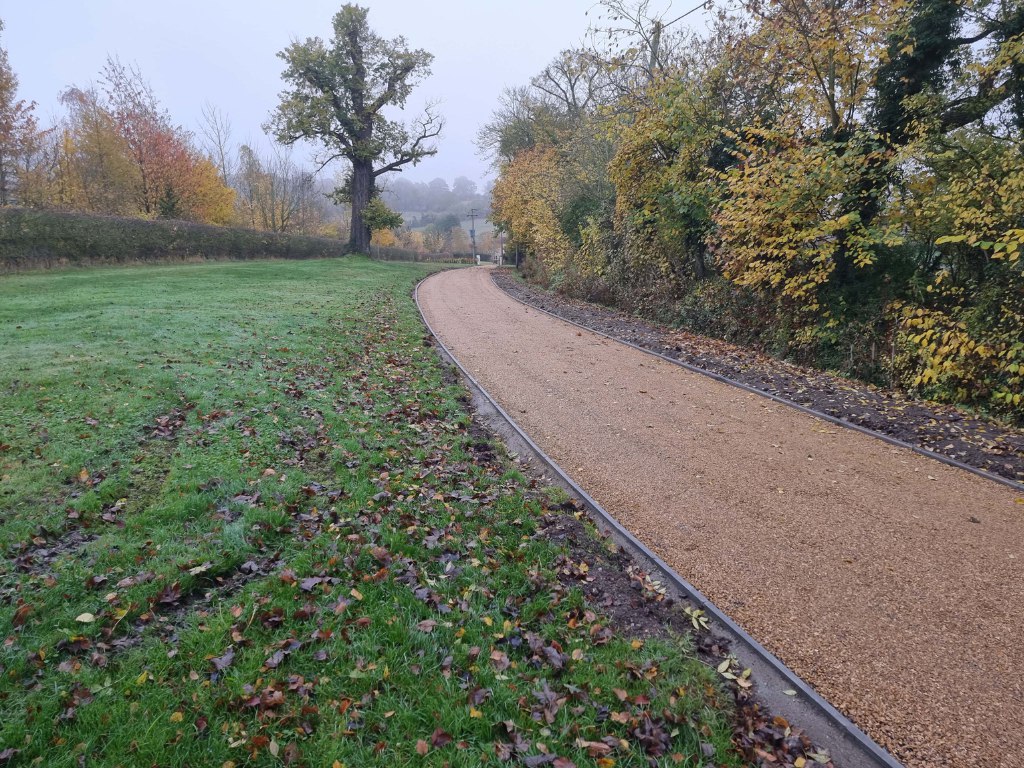How to Maintain Block Paving Driveways and Prevent Sinking or Shifting
A well-installed block paving driveway adds instant kerb appeal and durability to any property. However, over time, without proper maintenance, even the best-laid surfaces can begin to sink, shift, or look uneven. For homeowners in Shortstown, Bedfordshire, understanding how to look after their block paving is key to keeping it looking its best and performing well year after year. At Shortstown Driveways & Patios, we know that consistent care and professional upkeep make all the difference between a driveway that lasts decades and one that deteriorates prematurely.
Understanding Why Block Paving Moves or Sinks
Block paving is designed to be flexible, which allows it to cope with temperature changes and heavy loads. However, when movement becomes visible — such as dips, loose bricks, or uneven edges — it’s usually caused by issues below the surface.
Common causes of sinking or shifting include:
- Poor sub-base preparation: If the foundation wasn’t compacted properly, the blocks can move over time.
- Insufficient jointing sand: Missing or worn jointing sand allows movement between blocks.
- Drainage problems: Standing water can wash away the sand or weaken the sub-base.
- Heavy vehicle use: Excessive weight in one area can compress the ground unevenly.
Preventing these issues begins with good maintenance practices and regular inspections to catch early signs of wear.
Routine Maintenance for Long-Lasting Block Paving
Keeping your block paving driveway in excellent condition doesn’t require constant work, but a little regular attention can go a long way. Homeowners in Shortstown can maintain their driveways effectively by following a few simple steps.
1. Regular Cleaning
Sweep the surface frequently to remove debris, dirt, and leaves that can hold moisture or encourage weed growth. Every few months, rinse the driveway using a hose or low-pressure washer to clear surface grime.
2. Weed Control
Weeds often grow in the joints between blocks, especially if jointing sand has been displaced. Apply a weed killer or manually remove any visible growth. Refill the joints with fresh kiln-dried sand to prevent regrowth and stabilise the blocks.
3. Re-Sanding the Joints
Over time, wind and rain can erode the jointing sand that holds the blocks in place. Re-sanding once a year helps maintain stability. Brush kiln-dried sand into all joints to keep the blocks tightly locked together.
4. Checking for Drainage Issues
Inspect your driveway after heavy rain. If water pools in certain areas, this could indicate an underlying problem with the sub-base. Addressing drainage concerns early prevents water from undermining the structure.
5. Avoid Heavy Loads
While block paving is strong, repeatedly parking large vehicles in the same spot can cause the surface to compress unevenly. Try to vary parking positions where possible to spread the load evenly.
Preventing Sinking and Uneven Surfaces
Sinking block paving is not only unsightly but can also become a tripping hazard. The best way to prevent this issue is through proactive maintenance and professional restoration when needed.
Tips to Prevent Sinking:
- Keep joints filled: Well-packed joints support the blocks and prevent shifting.
- Maintain the edges: Loose edge restraints can allow blocks to spread outwards.
- Monitor for early movement: Small dips or lifted blocks should be corrected quickly before they worsen.
- Ensure proper drainage: Standing water is one of the biggest causes of driveway movement.
Shortstown Driveways & Patios can professionally inspect and re-level your driveway if you notice any unevenness, ensuring that the sub-base is solid and compacted before relaying the blocks.
When to Consider Professional Help
If sections of your driveway are noticeably lower or the blocks have started to move apart, it’s best to seek expert help rather than attempting a DIY repair. Professional driveway specialists have the right tools and experience to lift, recompact, and relay the blocks correctly. This ensures a seamless finish that blends perfectly with the surrounding surface while restoring structural integrity.
At Shortstown Driveways & Patios, we use proven methods to correct and prevent sinking, ensuring your block paving continues to perform as intended. Our team can also advise on long-term maintenance practices tailored to your specific driveway layout and usage.
Enhancing the Lifespan of Your Driveway
The lifespan of a block paving driveway depends on the quality of its installation and the consistency of its maintenance. By keeping the surface clean, ensuring proper drainage, and addressing minor problems early, homeowners in Shortstown can enjoy a driveway that remains solid, safe, and visually appealing for many years.
Conclusion
Maintaining block paving driveways is all about prevention, care, and timely attention. By keeping the joints well-sanded, managing water flow, and addressing small issues before they develop, you can avoid costly repairs and keep your driveway in prime condition. For expert inspection, re-levelling, or professional maintenance, Shortstown Driveways & Patios offers trusted local service that helps protect and enhance your home’s exterior for the long term.
Call us on: 01234 395 493
Click here to find out more about Shortstown Driveways & Patios
Click here to complete our contact form and see how we can help with your driveway needs.

